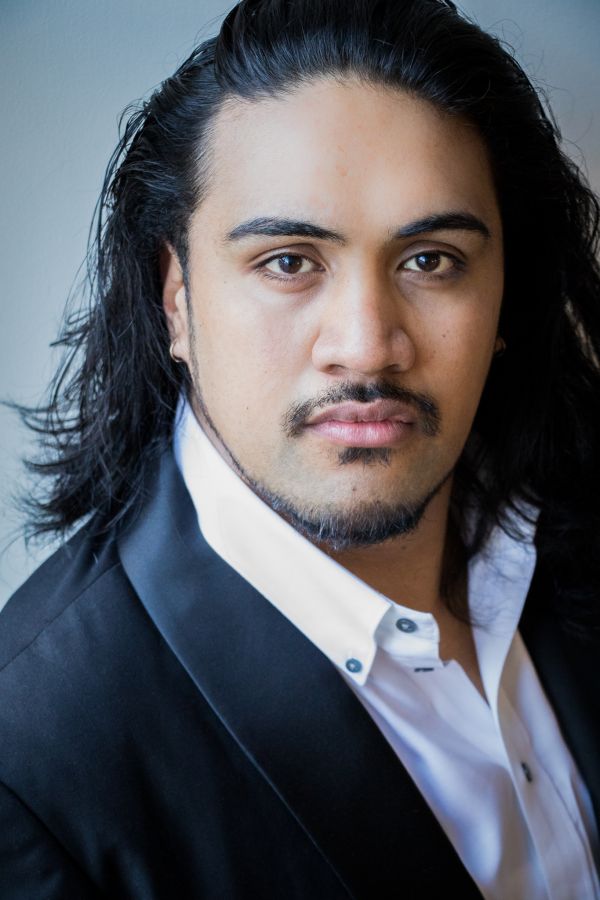On tour in Argentina with NZSSC a group of us linked arms as we walked through the streets of Buenos Aires, singing Si te quiero es por que sos. It’s a beautiful ballad that served as a political love song to the people of Argentina during a dark period of politics that saw thousands of people ‘disappear’ in horrible circumstances. The lyrical content points to two lovers walking hand-in-hand in the street, but the poem took on a completely deeper and stronger meaning for Argentinian during this turbulent time. In terms of its place in the musical folklore of the country, it’s akin to our Pokarekare Ana.
Almost ten years later, I still clearly remember the looks on the faces of the people on the street; some looked surprised, others openly emotional. The most remarkable thing happened, people started singing along and walking with us! We looked up above and people in apartments were throwing open their windows and also singing. It was like a movie scene and it was one of the purest moments of connection with music I’ve ever experienced. They didn’t know why we were singing their song, and we could not have possibly anticipated the reaction, but the joy and the emotion from that spur of the moment decision to just start singing will always stay with me.
I first heard about NZSSC from my grandmother who had read about it in the paper. We were not a particularly musical family, but everybody in the family loved music of every variety. My grandmother used to sing Maori lullabies to me and my dad forced a musical education of sorts on me — Freddy Mercury, Queen, Prince and the Red Hot Chili Peppers every morning on the way to kindergarten.
But there were two people who really inspired me. Sharon Stephens, my violin teacher, and Coryn Knapper, my first vocal teacher. I learned to read, write and interpret classical music and that’s where it all started to make sense for me.
When I joined the choir as a shy fourteen year old, I was a relatively timid musician but an enthusiastic singer. Robert Wiremu (NZSSC Artistic Director at the time) would tell us to ‘put the end consonant on the final quaver’. I had absolutely no idea what to mark in my score. It was a scary experience to begin with, but I loved it and I wanted to learn. The skills I gained were immensely useful. I learned to think faster, work in a team, sing and think as a chorister. I learned to appreciate and sing a variety of musical works that I came to love and I am pretty sure I could probably still sing most of them from memory today! … NZSSC gave me the most incredible chance to travel this beautiful country and to travel overseas for the first time; I’ll be always grateful for that.
My most embarrassing memory from NZSSC was when auditioning for a solo in front of Robert. I was the youngest in the choir and very nervous. My voice started wobbling and shaking and I thought I was going to melt into the floor with sweaty embarrassment. It was awful! I didn’t get the part but it was a highlight in a way, teaching me a lesson about preparation and dealing with nerves.
I made life-long friends like Isabella Moore, a friend and inspiration in recent years as we have both traversed the operatic field in New Zealand and overseas. She’s been so supportive and kind to me. It always gives me joy when I see some of the amazing things everyone is doing now, and the career paths we are on. A couple of ex-NZSSC members are based in London now, which is where I am heading, so hopefully we can catch up! While you may not remain as close as you once were during the choir, there is a network of incredible people out there who I was fortunate enough to spend just a bit of time with, and who I know I can reach out to.
I auditioned for the Dame Malvina Major Emerging Artist programme with New Zealand Opera because I had always seen it as a goal. My first audition was unsuccessful and for a little while I was quite disappointed. Then I realised that I had been handed the chance to go away and rethink. Dame Malvina took me on as a pupil and supported me but also let me know exactly what was missing in my singing. We worked together and I kept competing in as many competitions I could. I was successful the following year and I had the most marvellous experience working with New Zealand Opera as an intern. It was one of the best and most rewarding years in my singing life so far.
I first heard about the Lexus Song Quest when it was still the Mobil Song Quest. I knew Dame Kiri Te Kanawa and Dame Malvina Major had won and I remember, at seven years old, asking my grandmother when I would be old enough to enter. So it had been a dream for a long time! In 2014, the first time I auditioned, I was the youngest semi-finalist and awarded the Radio New Zealand listener’s prize. My friend Isabella Moore won the whole thing! Last year, I came third. it was an absolutely incredible moment. A highlight was also meeting Yvonne Kenny, an Australian soprano, whose voice I have always loved and who will be my singing teacher in London.
I studied at Auckland University under Dr. Morag Atchison primarily, coached by Rosemary Barnes, David Kelly and Robert Wiremu. While I was there, I also attended the NZ Opera School. NZOS has been an integral part of my music training. It focuses on a holistic approach to training; daily fitness exercises (yoga, walking, muscle training), language and music coaching, voice lessons, stage craft, concert work, public and private master classes, it’s pretty full-on!
I became passionate about Pacifica Youth Education at Auckland University. I had a job as a Pasifika Student Mentor and Ambassador, which involved travelling out to high schools around Auckland and talking to the students about tertiary studies/helping them with any exams we could. It really motivated me to represent my communities as best I can, because role-modelling for our rangatahi is so important. Just as I look up to the examples of those New Zealanders who have been such trail blazers in the Classical Music world (the likes of Dame Malvina Major, Dame Kiri Te Kanawa, Iosefa Enari, Simon O’Neill, and most recently, Pene and Amitai Pati, Isabella Moore), there are the next generation of students coming through who are looking to us to help them on their way, too.
My other great passion is history. I recently contributed to a WW100 project called Luck of the Draw. I have taken a real keen interest in New Zealand history of the nineteenth and twentieth centuries and the ways in which our identity as Kiwis has been formed by world events, as well as local events. Luck of the Draw was a great chance to do something quite challenging. I’ve never written lyrics for a hip hop song before! It was a meeting of two of my loves.
Duffy Books in Homes is also close to my heart. My grandfather was always buying and sneaking books into the house under my grandmother’s nose (who insisted we had too many!). He would read me a story every night. Through Duffy Books, thousands of children across the country receive free books and are actively encouraged to read and be engaged in their learning. As a volunteer, my work is to go into the schools, give talks to the students and distribute the books. I hope Duffy Books in Homes continues to help support the young New Zealanders for a long time to come!
Right now I’m preparing to sing the role of Giulietta in Bellini’s, ‘I Capuleti e I Montecchi’ to be produced by the Auckland Opera Studio in 2018. We’re rehearsing so early because half the cast is moving to the UK next month. I’m also getting ready to travel to Melbourne in two weeks for a recital at the Australian National Academy of Music with Liam Wooding, a student at Auckland University with me. A typical day for me involves a lot of poetry as I am trying to memorise Schumann’s Liederkries Op.39 for this recital. I’m also prepping for two competitions in the next two weeks! It is a busy month but I wouldn’t have it any other way.
My goal has always been to be the very best singer and performer I can be. in the future, I would love to be working in Europe as well as at home with New Zealand Opera. But I have a lot of study and apprenticeship to go to earn my stripes. Hopefully I will be working with inspiring people and getting to study/perform operatic repertoire that is appropriate for my voice type, and challenging for me. As long as I’m in work that keeps me busy and in love with my career, I’ll be happy.
To young singers just starting out I would say: you can do it! There’s no one way to go, and there’s plenty of people out there who are going to help and support you. A career in music has its challenges and is not without disappointment. I’m still in the process of being able to turn the ‘no’s into ‘not yet’s. That skill is a necessary one in music. Just remember that not everybody’s path is the same and everyone has their day. Music is about love, despair, old stories, new ones. You have to experience the range yourself, otherwise what kind of musician would you be? If you’re willing to work hard, set realistic goals and stay determined, I think things have a way of working out.








